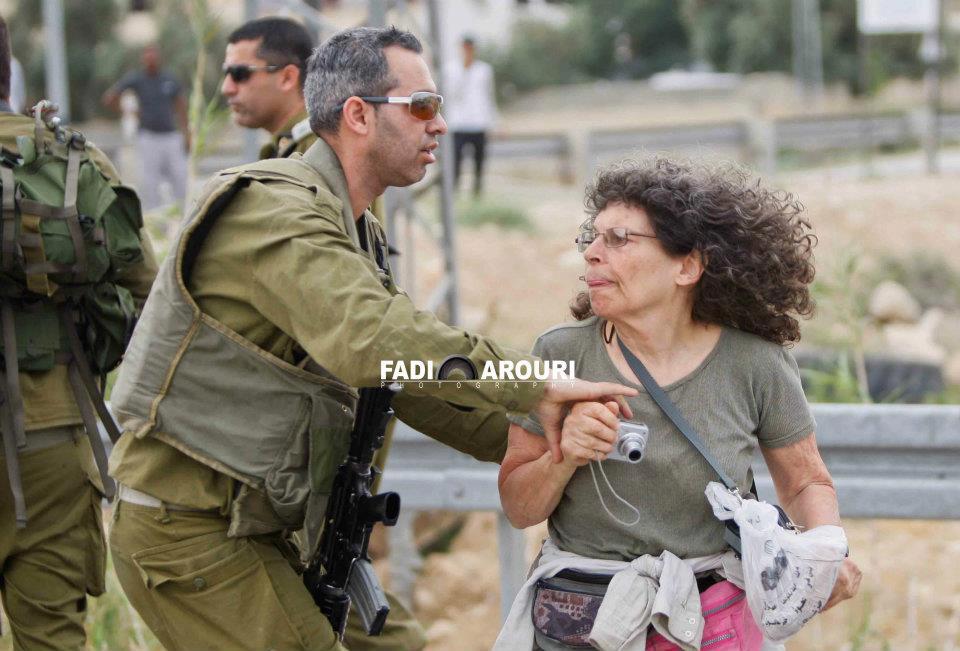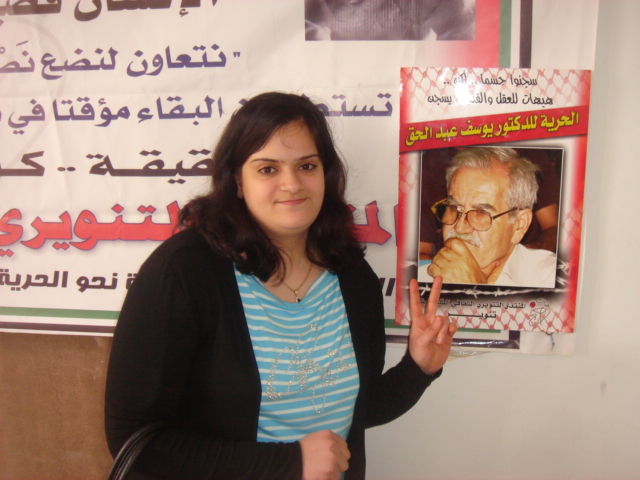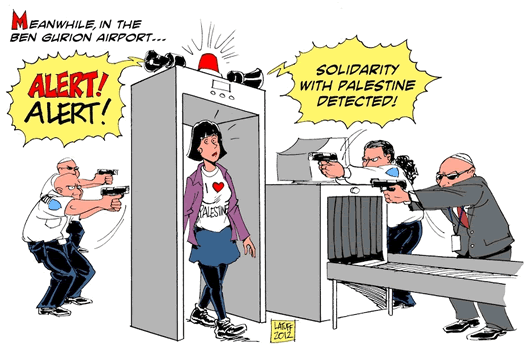Year: 2012
-
Palestinians and internationals attacked during biking trip in Jordan Valley
by Joseph and Emiliano 15 April 2012 | International Solidarity Movement, West Bank Palestinian and international cyclists were brutally attacked by the Israeli occupation forces on Saturday as they attempted to bike up Route 90, the main North-South highway running through the Jordan Valley. The cyclists were demonstrating against Israeli apartheid policies in the Jordan…
-
The price of intellectual resistance
by Sylvia 14 April 2012 | International Solidarity Movement, West Bank “Our souls are not devastated, we are hanging on” On the 7th November 2011, founder of the Palestinian Cultural Enlightenment (Tanwer) and lecturer at the An- Najah University, Dr. Yousef Abdul Haq, was arrested from his home at two o’clock in the morning. Dr. Yousef…
-
Israel is paranoid about pro-Palestinian activists
by Gideon Levy 12 April 2012 | Haaretz Israel will not stand idly by as thousands of activists prepare to arrive on Sunday; it will not miss an opportunity to look ridiculous in the eyes of the world. And with what shall we frighten the Israeli public in advance of the seventh day of Passover?…



